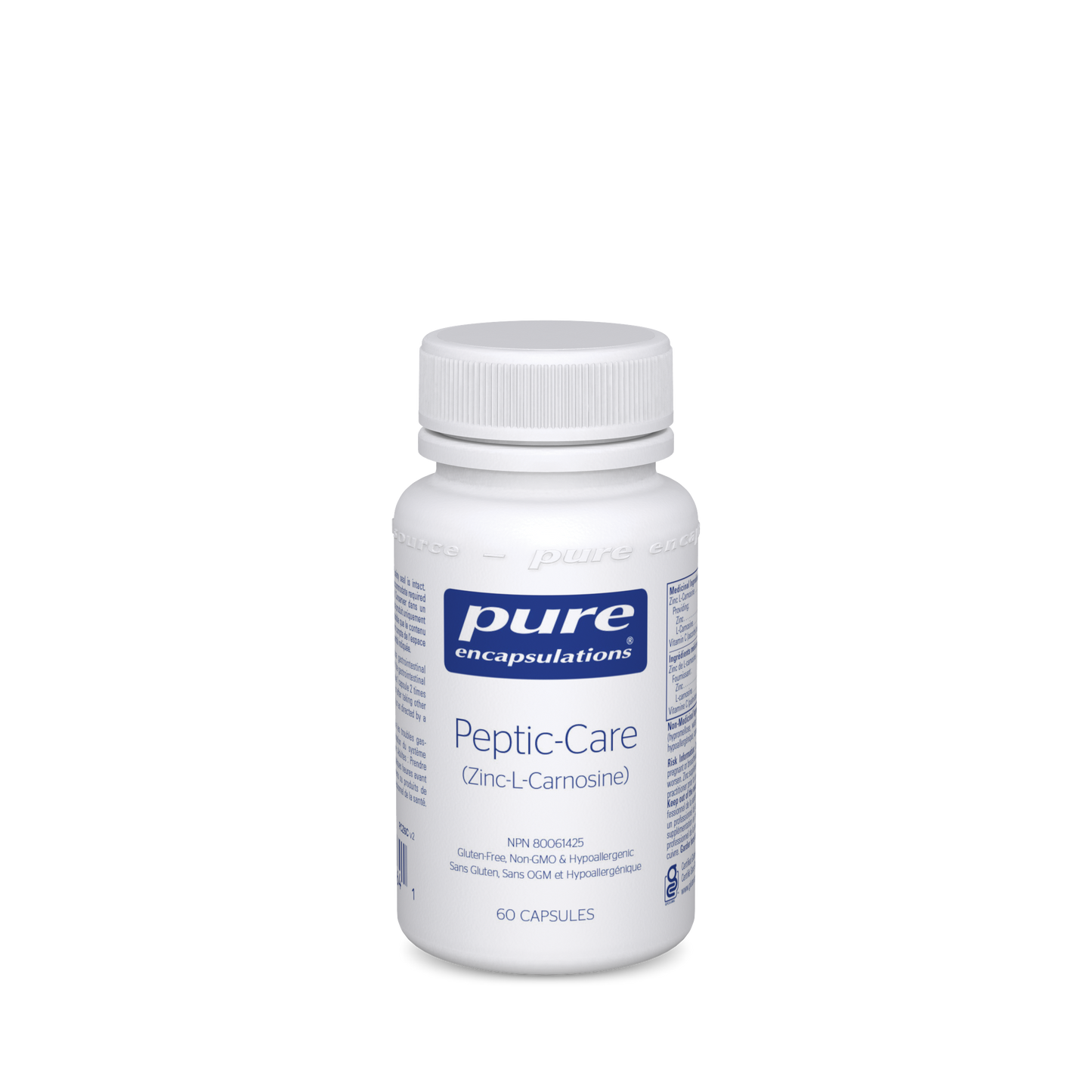provides patented support for reducing gastrointestinal discomfort by decreasing inflammation of the gastrointestinal tract. Zinccarnosine has a slow dissociation rate and adheres to the stomach lining. Once dissociated, zinc and carnosine promote gastrointestinal comfort by maintaining healthy cytokine release and reducing inflammation in the gut. Studies have suggested that this combination has greater effects on the integrity of the gastric lining than either ingredient alone. Inflammation in the gastrointestinal tract can result in increased gut permeability and epithelial damage, affecting villi and intestinal tight junction integrity. In turn, this can lead to microbial imbalance and gastrointestinal discomfort. One Japanese multi-center, doubleblind study involving 299 subjects described a positive effect of zinc-carnosine on objective and subjective parameters of gastric health, especially after eight weeks. Seven additional clinical evaluations with more than 550 volunteers indicate similar results. Specifically, one study reported that zinc-carnosine maintained healthy gut permeability, which is positively associated with gastrointestinal comfort. The antioxidant vitamin C is also included to promote wound healing by helping to form collagen.
provides patented support for reducing gastrointestinal discomfort by decreasing inflammation of the gastrointestinal tract. Zinccarnosine has a slow dissociation rate and adheres to the stomach lining. Once dissociated, zinc and carnosine promote gastrointestinal comfort by maintaining healthy cytokine release and reducing inflammation in the gut. Studies have suggested that this combination has greater effects on the integrity of the gastric lining than either ingredient alone. Inflammation in the gastrointestinal tract can result in increased gut permeability and epithelial damage, affecting villi and intestinal tight junction integrity. In turn, this can lead to microbial imbalance and gastrointestinal discomfort. One Japanese multi-center, doubleblind study involving 299 subjects described a positive effect of zinc-carnosine on objective and subjective parameters of gastric health, especially after eight weeks. Seven additional clinical evaluations with more than 550 volunteers indicate similar results. Specifically, one study reported that zinc-carnosine maintained healthy gut permeability, which is positively associated with gastrointestinal comfort. The antioxidant vitamin C is also included to promote wound healing by helping to form collagen.
provides patented support for reducing gastrointestinal discomfort by decreasing inflammation of the gastrointestinal tract. Zinccarnosine has a slow dissociation rate and adheres to the stomach lining. Once dissociated, zinc and carnosine promote gastrointestinal comfort by maintaining healthy cytokine release and reducing inflammation in the gut. Studies have suggested that this combination has greater effects on the integrity of the gastric lining than either ingredient alone. Inflammation in the gastrointestinal tract can result in increased gut permeability and epithelial damage, affecting villi and intestinal tight junction integrity. In turn, this can lead to microbial imbalance and gastrointestinal discomfort. One Japanese multi-center, doubleblind study involving 299 subjects described a positive effect of zinc-carnosine on objective and subjective parameters of gastric health, especially after eight weeks. Seven additional clinical evaluations with more than 550 volunteers indicate similar results. Specifically, one study reported that zinc-carnosine maintained healthy gut permeability, which is positively associated with gastrointestinal comfort. The antioxidant vitamin C is also included to promote wound healing by helping to form collagen.

